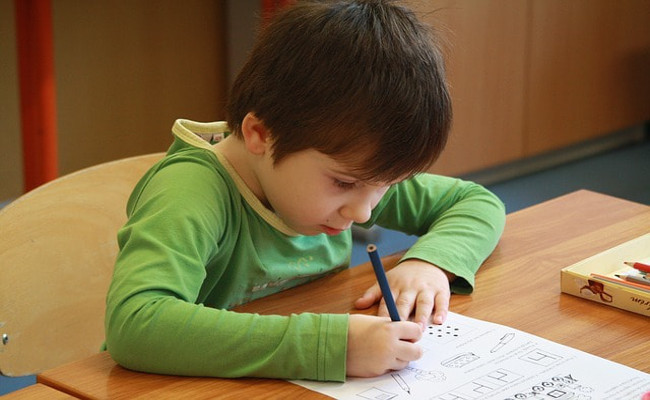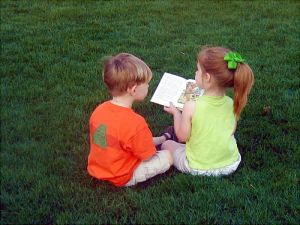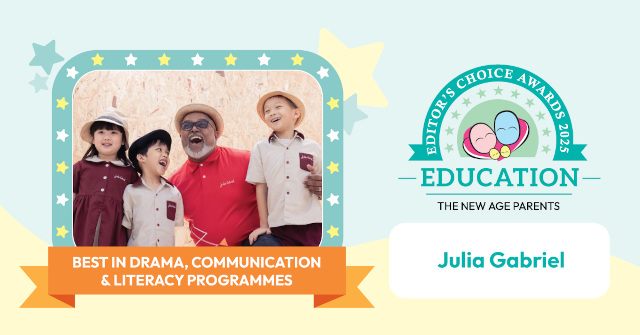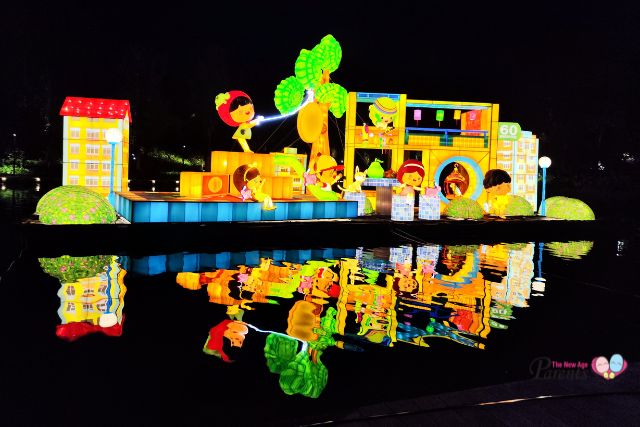Many parents often find it difficult to make their child love and enjoy learning. However, these parents often forget the first two years of their child’s life. The child learns how to sit, crawl, stand, walk and talk among many other important and difficult things with little to no prodding by anyone. Nobody ever worried about a child being lazy and unwilling to learn in his early childhood. Hence, the question that we shall address in this article is how to nurture this natural love for learning and to allow it to grow beyond his early childhood.

As any parents of young children will know, children are naturally curious and have an in-built desire to learn everything about the world around them. Childhood education begins not in the classroom but in the everyday environment that the child grows up in.
A child does not need to be instructed to find out about the complicated world around him and he does not need stars or good grades to motivate him to do so. He is excited and experimental and willing to try everything to learn anything. He can smell, touch, taste and throw the same object repeatedly just to find out everything about it. Thus, in his childhood education, parents should not be trying to help him to discover the love for learning for it is already in him. The role of parents here is to nurture and grow it so that it stays with the child beyond his early childhood.
And the best thing parents can do for their child in this early stage of their child development is to give them space and room to explore their love for learning. Children know instinctively the best way to learn. And parents have to trust that their child will discover for themselves the best way to learn.
The worst thing a parent can say “that’s the wrong way!” It creates stress in the child. And to quote John Holt, “when we make children afraid, we stop learning dead in its track.” Young children do not respond well to stress in the early stages of their child development.
The fear of failure and the intimidation of admonishment from their parents often make it difficult for them to enjoy learning. Instead of being willing to try anything to learn, a child often tries to protect himself by hiding his ignorance. Hence, stress does not motivate them to work harder; instead it causes them to bury their natural curiosity so as to avoid this negative feeling.

And as Albert Einstein wrote, “It is a very grave mistake to think that the enjoyment of seeing and searching can be promoted by means of coercion.” Thus, parents should not be coercing their child into learning. Rather, their role as a parent is to facilitate and encourage the process of learning. Hence, rather than holding the child’s hand in the learning process, the parent should give the child room to make mistakes. This allows the child to discover the best way for him to learn and at the same time avoid giving the child unnecessary stress in his learning process.
Beyond their role as facilitators, parents also play another critical role in these early stages of child development. Parents often believe that the best way to help their child learn is buying a shelf full of books, sending their child to a range of enrichment programmes, purchasing a variety of educational games and videos. While all these play a part, they ignore the fact that the parent is often the best teacher a child can have. The natural bond that exists between a child and his parent means that it does not take much effort on the parent’s part to inspire the child to find out more about his everyday environment.
 The trust between the child and his parent is not something that can easily be replicated by enrichment programme teachers as such it is much more difficult for the child to learn from an external agent. Hence, brain-stimulation programmes which are parent-accompanied programmes are much more effective at encouraging the child to learn. With their parent by their side, the child experiences less stress in a new environment and is more willing to open up his mind and to learn.
The trust between the child and his parent is not something that can easily be replicated by enrichment programme teachers as such it is much more difficult for the child to learn from an external agent. Hence, brain-stimulation programmes which are parent-accompanied programmes are much more effective at encouraging the child to learn. With their parent by their side, the child experiences less stress in a new environment and is more willing to open up his mind and to learn.
Children also learn best via interaction with other people and through first-hand experiences. Hence, instead of encouraging the child to watch more educational videos or to read more books, it is often more effective to give the child opportunities to learn for himself and to learn together with others. And programmes like My Little Genius allow them to do so with opportunities to interact with other children and also opportunities to learn first-hand.
Ultimately, parents play an important role in deciding if the child will continue to develop his natural love for learning or become one of the many typical children that dread going to school and hate the entire process of learning new things. It is in these formative years of the child’s development when a parent’s choices will have effects beyond the early childhood.
Contributed by Ivy Lim & Lim Wee Ming (MLG)
If you find this article useful, do click Like and Share at the bottom of the post, thank you.
Want to be heard and seen by over 100,000 parents in Singapore? We can help! Leave your contact here and we’ll be in touch.

















































